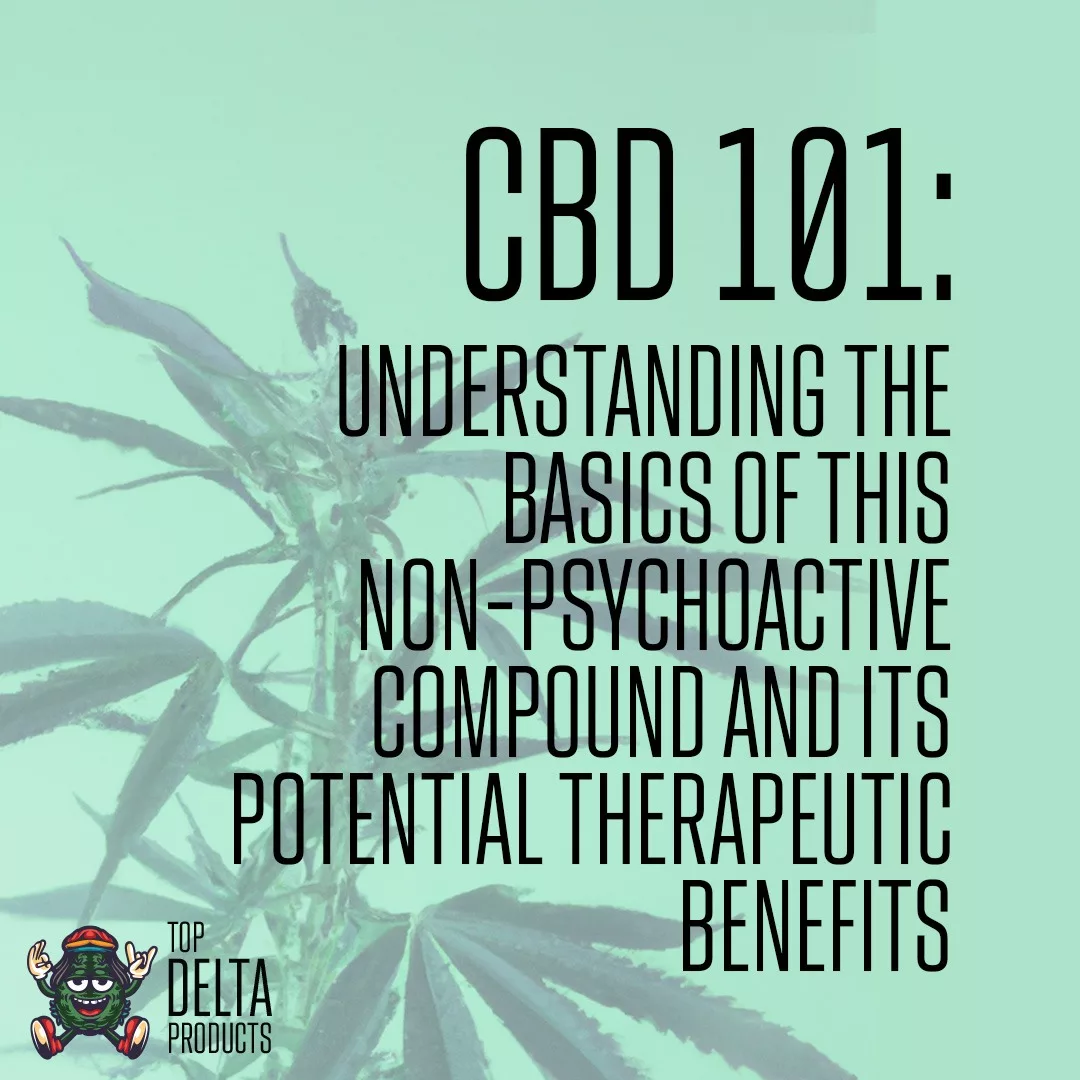Introduction to Cannabidiol (CBD)
Discover cannabidiol (CBD), a chemical compound found in the cannabis plant. It is a non-psychoactive compound, meaning it does not produce the “high” associated with marijuana use.
CBD is gaining a lot of attention for its potential therapeutic benefits, and more and more people are turning to CBD as an alternative form of treatment. But what exactly is CBD and how does it work?
The human body has a system called the endocannabinoid system (ECS). This system is responsible for maintaining balance or homeostasis in the body. It is made up of receptors and neurotransmitters found throughout the body, which helps regulate various physiological processes such as pain, mood, appetite, and sleep.
The Endocannabinoid System (ECS) and how CBD interacts with it
CBD interacts with the ECS by binding to its receptors. This is thought to have therapeutic potential in treating a wide range of conditions, including anxiety, chronic pain, and even certain types of seizures. Studies have also shown that CBD may help reduce inflammation, improve heart health, and even help with addiction.
Methods of consumption of CBD
CBD can be consumed in a variety of forms, including oil, capsules, gummies, and even in topical form. CBD oil is one of the most popular forms of CBD, it is taken sublingually (under the tongue) by placing a few drops of the oil under your tongue and holding it there for a minute or two. Use the sublingual method to allow CBD to absorb into the bloodstream more quickly. CBD capsules and gummies are also easy to consume and are a great option for people who have trouble with the taste of CBD oil. Apply topical CBD products, such as creams and lotions, directly to the skin to target specific areas of pain or inflammation effectively.
CBD is also available as a prescription medication, like Epidiolex, which is used to treat some specific types of epilepsy. However, it is important to note that the FDA has not yet approved CBD as a treatment for any condition, and more research is needed to fully understand its effects on the human body.
Legality and purchasing considerations for CBD products
It’s important to note that the legality of CBD varies from state to state and country to country. In some places CBD is legal and in others it is not. It is important to check the laws in your location before purchasing or consuming CBD.
When it comes to buying CBD products, it is important to make sure you are purchasing from a reputable source. Not all CBD products are created equal, and some may contain harmful contaminants or less CBD than advertised. Ensure product quality and purity by always looking for products that have been third-party tested by an independent lab.
Importance of consulting with a healthcare professional before trying CBD
If you are thinking of trying CBD, it is important to speak with a healthcare professional. They can help you determine the right dosage and form of CBD for your needs, and also advise you on any potential interactions with other medications you may be taking.
Conclusion: CBD as a potential alternative form of treatment.
In conclusion, CBD is a chemical compound found in the cannabis plant that has potential therapeutic benefits. It interacts with the body’s endocannabinoid system to help regulate various physiological processes. CBD has potential therapeutic benefits, but more research is needed to fully understand its effects. Despite this, it is worth exploring as a potential alternative form of treatment. Before trying CBD, it is important to consult with a healthcare professional. Check the legality of CBD in your location and purchase from a reputable source to ensure purity and quality. CBD may be a great alternative form of treatment for a wide range of conditions.
CBD 101 Understanding the Basics
